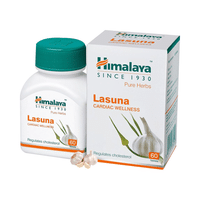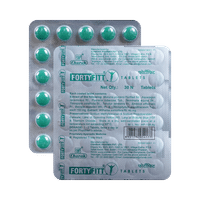Rs.27.10for 1 strip(s) (10 tablets each)
Amopress Tablet માટે આંતરક્રિયાનો ખોરાક
Amopress Tablet માટે આંતરક્રિયાનો આલ્કોહોલ
Amopress Tablet માટે આંતરક્રિયાનો સગર્ભાવસ્થા
Amopress Tablet માટે આંતરક્રિયાનો સ્તનપાન
ખોરાક
આલ્કોહોલ
સગર્ભાવસ્થા
સ્તનપાન
Amopress 5mg Tablet may be taken with or without food, but it is better to take it at a fixed time.
None
None
CAUTION
Caution is advised when consuming alcohol with Amopress 5mg Tablet. Please consult your doctor.
CAUTION
Amopress 5mg Tablet may be unsafe to use during pregnancy. Although there are limited studies in humans, animal studies have shown harmful effects on the developing baby. Your doctor will weigh the benefits and any potential risks before prescribing it to you. Please consult your doctor.
CONSULT YOUR DOCTOR
Amopress 5mg Tablet is probably safe to use during breastfeeding. Limited human data suggests that the drug does not represent any significant risk to the baby.
SAFE IF PRESCRIBED
Amopress 5mg Tablet માટે સોલ્ટની માહિતી
Amlodipine(5mg)
Amopress tablet ઉપયોગ
{med_name} is used in the treatment of Angina (heart-related chest pain) and Hypertension (high blood pressure).
Amopress tablet કેવી રીતે કાર્ય કરે
Amopress 5mg Tablet is a calcium channel blocker. In high blood pressure, it normalizes the blood pressure by relaxing the blood vessels to reduce the pressure on them, thereby improving the blood flow in the body. In heart-related chest pain (angina), the enhanced blood flow in the body relaxes the heart muscles by reducing the workload on the heart. It also improves the oxygen flow in the body, thereby, preventing any heart-related chest pain.
Amopress tablet ની સામાન્ય આડઅસરો
Headache, Fatigue, Nausea, Abdominal pain, Sleepiness, Edema (swelling)
Amopress Tablet માટે સબસ્ટિટ્યુટ
339 સબસ્ટિટ્યુટ
339 સબસ્ટિટ્યુટ
Sorted By
 Rs. 42same price
Rs. 42same price Rs. 84save 2% more per Tablet
Rs. 84save 2% more per Tablet Rs. 28same price
Rs. 28same price Rs. 27.90save 4% more per Tablet
Rs. 27.90save 4% more per Tablet Rs. 28save 24% more per Tablet
Rs. 28save 24% more per Tablet
Amopress Tablet માટે નિષ્ણાતની સલાહ
- You have been prescribed Amlodipine to improve your blood pressure and/or to reduce the number and severity of angina attacks.
- Lowering blood pressure reduces the chance of future heart attack and stroke.
- Take it at the same time every day to help you remember to take it.
- A sudden drop in your blood pressure may occur, especially when you first start taking Amlodipine. To lower the chance of feeling dizzy or passing out, rise slowly if you have been sitting or lying down.
- It can cause ankle or foot swelling. To reduce the swelling, raise your legs while you are sitting down. Talk to your doctor if it does not go away.
- It may cause dizziness. Do not drive or perform any activity that requires mental focus until you know how Amlodipine affects you.
- Inform your doctor if you are pregnant, planning a pregnancy or breastfeeding.
Amopress 5mg Tablet માટે વારંવાર પૂછાતાં પ્રશ્નો
Amlodipine
Q. How long does it take for Amopress 5mg Tablet to work?
Amopress 5mg Tablet starts working on the day it is taken. However, it may take weeks to see the full effect. You should continue taking the medicine even if you feel better or if you do not notice any considerable difference. Consult your doctor if you have any concerns or you feel worse after taking the medicine.
Q. Does Amopress 5mg Tablet cause itching?
Amopress 5mg Tablet may cause itching in some patients, though it is an uncommon side effect. However, if you experience severe itching contact your doctor.
Q. Is Amopress 5mg Tablet bad for the kidneys?
No, there is no evidence that Amopress 5mg Tablet causes deterioration of kidney problems. Amopress 5mg Tablet can be used in normal doses in patients with kidney problems. In fact, its blood pressure-lowering effect, it helps to prevent injury to the kidneys due to hypertension.























